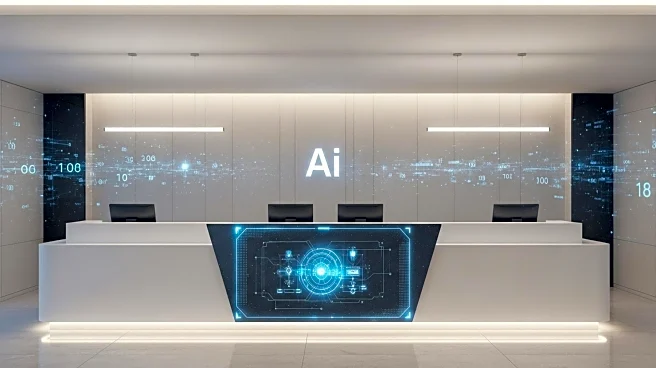What's Happening?
The hospitality industry is increasingly focusing on the importance of clean and structured data to effectively leverage artificial intelligence (AI) technologies. As AI becomes a critical tool for enhancing guest experiences and operational efficiency, the industry faces challenges related to data quality and integration. The concept of 'Garbage In, Garbage Out' (GIGO) highlights the risks of using incomplete or inaccurate data, which can lead to poor service and misinformed AI algorithms. To address these issues, industry experts advocate for robust data plumbing, including integrations, interfaces, and APIs, to ensure data flows smoothly and accurately across systems. This approach aims to create a unified data foundation that supports AI-driven personalization and strategic insights, ultimately transforming hospitality operations.
Why It's Important?
The significance of clean data in the hospitality industry lies in its potential to unlock AI's full capabilities, such as predictive personalization, dynamic pricing, and operational automation. By ensuring data quality and connectivity, hotels can enhance guest satisfaction and profitability. The industry's legacy of poor data architecture has hindered progress, making it crucial to establish standardized data practices and real-time, bi-directional data flow. This transformation requires collaboration among stakeholders to overcome technical and human silos, enabling AI to deliver on its promise of improved guest experiences and strategic business insights. As AI applications evolve, the ability to adapt and leverage clean data will be a key differentiator for hospitality operators.
What's Next?
The next steps for the hospitality industry involve investing in clean, actionable data foundations and embracing a culture of continuous improvement. Operators are encouraged to implement CRM technologies to aggregate and cleanse guest data, enhancing personalization and customer service. The integration of PMS, RMS, POS, CRM, and channel managers is essential for real-time data flow, avoiding the GIGO trap. As AI technologies advance, the industry must focus on building flexible, well-connected data systems that allow use cases to emerge and adapt. This approach will empower teams to act faster and smarter, positioning AI as a catalyst for genuine transformation in hospitality.
Beyond the Headlines
Beyond the immediate benefits of AI in hospitality, there are deeper implications related to data governance and human trust. The risk of 'Garbage In, Hallucination Out' (GIHO) underscores the strategic dangers of inaccurate data leading to persuasive but false AI outputs. Addressing these challenges requires not only technical solutions but also fostering a culture of trust and collaboration among employees. As AI becomes more integrated into hospitality operations, the balance between technological advancement and human oversight will be crucial in ensuring ethical and effective use of AI.









